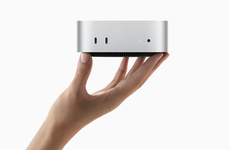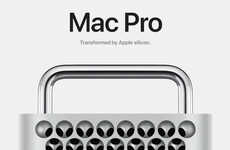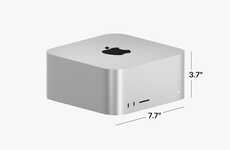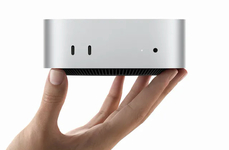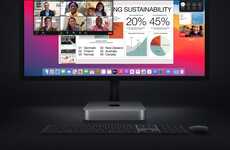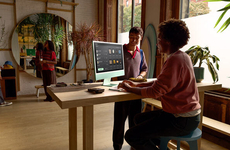
New Macs Boot Windows XP
Jonelle Fenton — April 11, 2006 — Tech
References: apple
Now you can boot XP on your MAC. Check it out:
From Mac.com:
More and more people are buying and loving Macs. To make this choice simply irresistible, Apple will include technology in the next major release of Mac OS X, Leopard, that lets you install and run the Windows XP operating system on your Mac. Called Boot Camp (for now), you can download a public beta today.
As elegant as it gets
Boot Camp lets you install Windows XP without moving your Mac data, though you will need to bring your own copy to the table, as Apple Computer does not sell or support Microsoft Windows.(1) Boot Camp will burn a CD of all the required drivers for Windows so you don't have to scrounge around the Internet looking for them.
Run XP natively
Once you've completed Boot Camp, simply hold down the option key at startup to choose between Mac OS X and Windows. (That's the “alt†key for you longtime Windows users.) After starting up, your Mac runs Windows completely natively. Simply restart to come back to Mac.
From Mac.com:
More and more people are buying and loving Macs. To make this choice simply irresistible, Apple will include technology in the next major release of Mac OS X, Leopard, that lets you install and run the Windows XP operating system on your Mac. Called Boot Camp (for now), you can download a public beta today.
As elegant as it gets
Boot Camp lets you install Windows XP without moving your Mac data, though you will need to bring your own copy to the table, as Apple Computer does not sell or support Microsoft Windows.(1) Boot Camp will burn a CD of all the required drivers for Windows so you don't have to scrounge around the Internet looking for them.
Run XP natively
Once you've completed Boot Camp, simply hold down the option key at startup to choose between Mac OS X and Windows. (That's the “alt†key for you longtime Windows users.) After starting up, your Mac runs Windows completely natively. Simply restart to come back to Mac.
Trend Themes
1. Dual-os Devices - The trend is towards devices that can run multiple operating systems natively, offering greater flexibility and utility for users.
2. Software Integration - The trend is towards greater integration of software from different operating systems, allowing for seamless workflows across multiple platforms.
3. OS Convergence - The trend is towards the convergence of different operating systems into a single, universal platform that can run any software or application.
Industry Implications
1. Consumer Electronics - The consumer electronics industry can incorporate dual-OS functionality into their devices, adding greater value and functionality to their products.
2. Enterprise Software - Enterprise software providers can capitalize on software integration initiatives by offering solutions that enable seamless workflows across multiple platforms and operating systems.
3. Cloud Computing - The cloud computing industry can take advantage of OS convergence trends by providing a platform that can seamlessly run any software or application regardless of the underlying operating system.
3.4
Score
Popularity
Activity
Freshness


